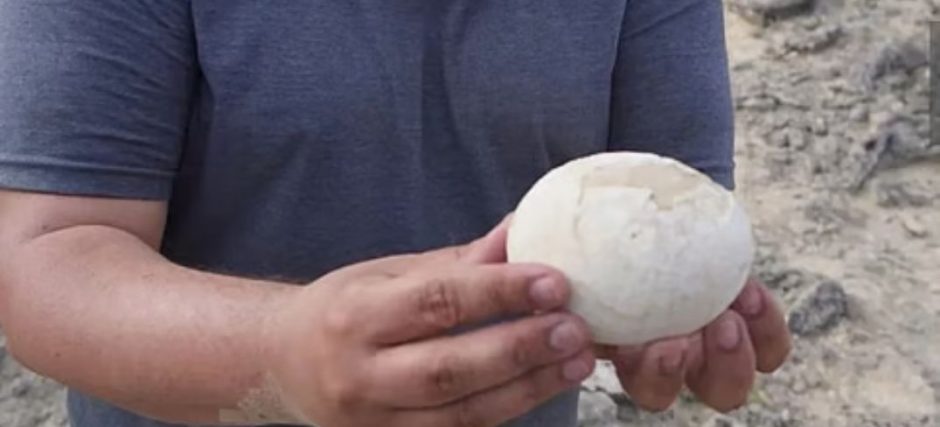Paleontologists in Argentina have discovered a 70-million-year-old dinosaur egg in the Patagonia region, astonishing scientists with its exceptional state of preservation. The fossil, found on the dusty plains of Río Negro, remains almost perfectly intact — resembling a freshly laid ostrich egg despite its ancient origin.
Experts believe the egg belonged to a Bonapartenykus, a small carnivorous theropod that once inhabited the area. Researchers describe it as one of the most well-preserved dinosaur eggs ever unearthed in South America. “Eggs from predatory dinosaurs are extremely rare because they were fewer in number and had fragile shells,” explained Gonzalo Muñoz of the Argentine Museum of Natural Sciences.
Initial studies suggest the egg may even contain traces of embryonic material, prompting plans for advanced imaging to confirm possible remains inside.
The discovery was part of the Cretaceous Expedition I project, which also uncovered mammal teeth and snake fossils, indicating the site may have been an ancient nesting ground.
Currently housed at the Argentine Museum of Natural Sciences, the egg will undergo detailed examination. Scientists say it could become a major milestone in paleontology, offering new insights into dinosaur reproduction and development.
“This remarkable preservation provides a rare window into prehistoric life,” said Muñoz. “It helps us better understand how these creatures nested, evolved, and adapted millions of years ago.”
In another discovery, New Dinosaur Footprint Discovery Expands Ancient “Dinosaur Highway”











